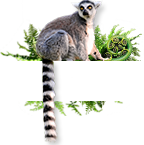
Programmes
Our experienced team provide ready-made and bespoke programmes for new entrants to year 13 that create a unique student experience. Whether your learning is focused on the impact of humans on the environment, unique Aotearoa, or what it means to be part of a community, learning takes place through appropriately themed programmes that use the zoo as the ‘classroom’. We can work with all themes, including those based around the Key Competencies, Values and Principles of the curriculum. Our dedicated educators will support your learning and can accommodate a wide range of ngā ākonga needs and abilities.
Some of our most popular themed programmes include:
Science, Social Science, Vision, Principles, Values
Programme Outline:
Students will observe a variety of native and exotic animal species and discover
what makes them so unique in our world. Find out
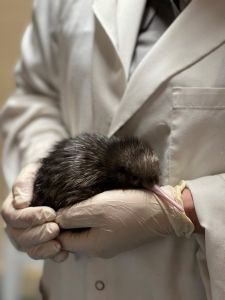
what problems they are facing and how the concept of Tiakitanga can help protect them
Enduring Understanding:
Through observing and interacting with animals, students will understand that:
- New Zealand natives are unique on Earth,
- The weather, birds, fish, trees, sun and moon are all connected to each other,
- If one of the aforementioned is damaged, then all the others are affected,
- Humans can have positive and negative impacts on our natural world,
- People can participate individually and collectively to help protect native and exotic species.
Biology AS 91606
Programme Outline:
Developed to specifically support achievement standard AS 91606, this programme covers the human journey over the last six million years.
Through first hand experience of a large collection of primate skulls students will become familiar with their key identifying features. By applying their observations to living primates and using the skills gained to examine hominin skulls, students will gain an understanding of the trends in human evolution.
Enduring Understanding:
Through observing and interacting with animals and resources, students will understand that:
- There are several key features which can be identified on all primates,
- These features can be interpreted to explain an animals behaviour,
- The way in which these features change over time in hominins is a key aspect of human evolution.
Science
Programme Outline:
Students will observe a wide range of animals from around the world and learn about their behavioural, structural and physiological adaptations.
 Students will learn how changing habitats
Students will learn how changing habitats
are causing problems for animals who are
unable to adapt quickly enough to survive.
Enduring Understanding:
Through observing and interacting with animals, students will understand that:
- Adaptations are the special features an animal possesses to enable it to survive,
- These special features can be grouped as structural, behavioural or physiological,
- Even with incredible adaptation, a changing habitat is a challenging environment in which to survive.
Social Science, Agri Science, Vision, Principles, Values
Programme Outline:
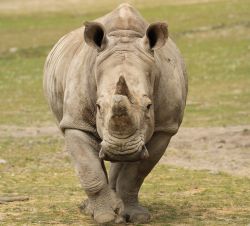
Through observing the animals in captivity and learning about the efforts made to prevent their extinction students will be able to form their own opinion on the validity of Zoos in our modern society.
Enduring Understanding
Through observing and interacting with animals, students will understand that:
- Many species are threatened with extinction,
- Keeping any animal in captivity may compromose the Freedoms it enjoys in the wild,
- Captive management of wild animals enables high breeding success and provides insurance populations,
- Conservation of endangered species within a zoo is done in four mains ways; captive breeding programmes, research, funding and resources, and education.
Social Science, Science, Vision, Principles, Values
Programme Outline:
Students will observe a variety of animals living in different communities and learn how these communities are structured to ensure the survival of group members.
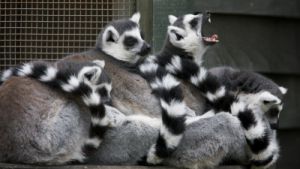
Just like animals, we (humans), too, develop certain roles and skills to help us navigate through life and solve problems, and today you will learn about some of the wise lifestyle choices you can make to help prevent wildlife from becoming endangered.
Enduring Understanding:
Through observing and interacting with animals, students will understand that:
- Different animals live in different types of communities
- All animals have roles and responsibilities within their community
Defined roles within the group help ensure the survival of all community members
Science
Programme Outline:
Through observation and interaction with native and exotic wildlife, students will
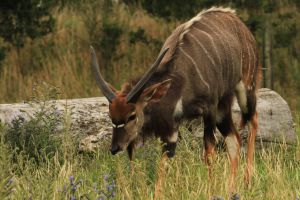
learn about what makes wildlife unique and construct food chains and webs using examples from real communities.
Enduring Understanding:
Through observing and interacting with animals students will understand that:
- the different adaptations animals possess enable them to use different sources of energy,
- food chains/webs represent the flow of energy through an ecosystem.
- changes to these food chains/webs affect all the animals within the ecosystem.
Science, Agri Science
Programme Outline:
Many of New Zealand’s native species are endemic – found nowhere else on earth –
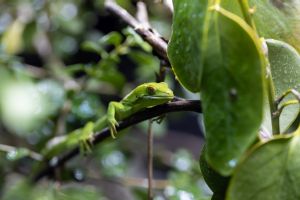
the result of 80 million years of isolated evolution and the diversity of New Zealand’s
land and seascapes. This remarkable fact makes New Zealand’s relatively primitive indigenous biodiversity very special in the world.
Enduring Understanding:
Through observing and interacting with animals students will understand that:
- New Zealand has a very unique biodiversity in the world
- NZ biodiversity is being affected by a variety of human induced activities/actions
- Biosecurity can help to protect sustainability

